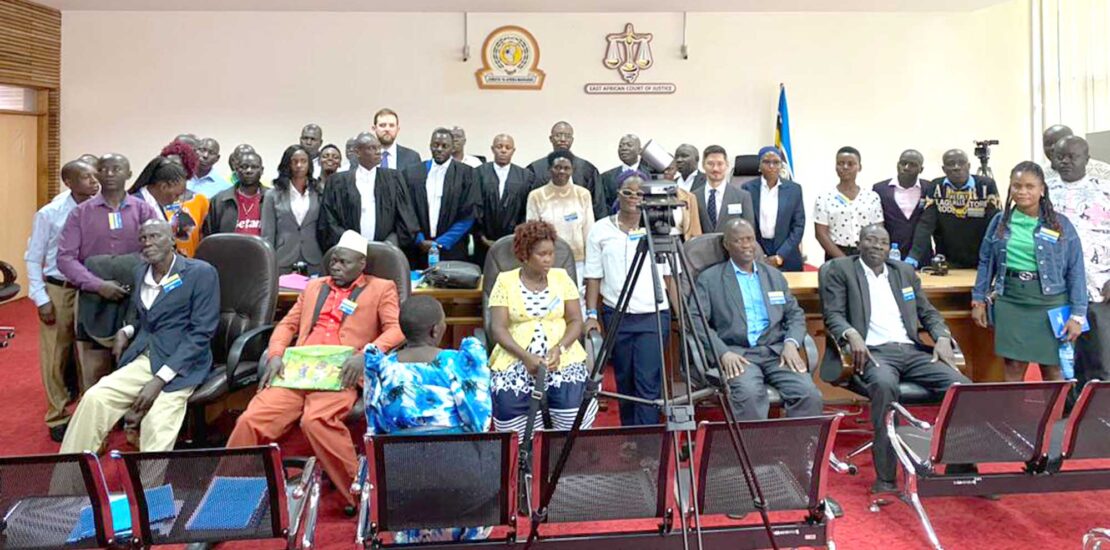EACOP Lawsuit: CSOs Challenge Pipeline Project Over Environmental and Human Rights Concerns
- June 5, 2025
- Posted by: CEFROHT Reporter
- Category: News Updates

Kigali, February 24, 2025 – The Center for Food and Adequate Living Rights (CEFROHT) and other East African civil society organizations (CSOs) have filed a public interest lawsuit at the East African Court of Justice (EACJ) against Uganda’s Attorney General, Tanzania’s Attorney General, and the Secretary General of the East African Community. The case centers on alleged violations of Project Affected Persons’ rights, environmental and biodiversity protections, riparian rights, and provisions under the African Charter and East African Community Treaty.
Reports from Oxfam, Environmental Impact Assessments, and the European Union warn that the East Africa Crude Oil Pipeline (EACOP) poses significant environmental and human rights risks. Communities along the proposed pipeline corridor in Uganda and Tanzania face threats to livelihoods, food insecurity due to evictions, and severe ecological damage. The pipeline’s proximity to Lake Victoria raises concerns over potential oil spills, water shortages, and deforestation, endangering a vital water source for millions in the region.
Experts estimate EACOP could produce 34 million tons of carbon dioxide annually, contradicting Uganda’s pledge to cut greenhouse emissions by 22% by 2030. The project may instead increase Uganda’s emissions by over 150%.
Court Proceedings
The case, currently under appeal, was last heard on February 24, 2025, in Kigali before a five-judge bench. The appellants—including CEFROHT, Africa Institute for Energy Governance (AFIEGO), Natural Justice (Kenya), and Centre for Strategic Litigation (Tanzania)—argued that the First Instance Court erred in dismissing their case as time-barred.
Key Arguments:
- The Tanzanian government provided conflicting evidence on the signing of key agreements.
- Preliminary objections should not apply where evidence disputes exist.
- The First Instance Court improperly evaluated evidence while ruling on procedural grounds.
- Awarding costs to the defendants could discourage future public interest litigation.
Dr. David Kabanda, representing the CSOs, stated that the lower court improperly examined evidence before dismissing the case. Justin Semuyaba, another lawyer for the appellants, emphasized that the lawsuit was filed within the legally mandated timeframe under Article 30 of the EAC Treaty.
Dr. Rugemeleza Nshala warned that imposing costs on public interest litigants could deter citizens from seeking justice. Joan Kembabazi added that such financial penalties discourage legal challenges against powerful entities.
Pending Judgment
Justice Nestor Kayobera announced that a ruling would be issued on notice. If the appellate court sides with the CSOs, the case will return to the First Instance Division for a merits-based hearing.
Reactions
Dickens Kamugisha, CEO of AFIEGO, urged Uganda and Tanzania to prioritize climate action. “African nations, being highly vulnerable to climate change, must avoid environmentally destructive projects,” he said. “This would strengthen their position in demanding accountability from high-polluting countries.”
The case highlights growing tensions between regional development projects and environmental and human rights protections, with implications for future energy and infrastructure policies in East Africa.
